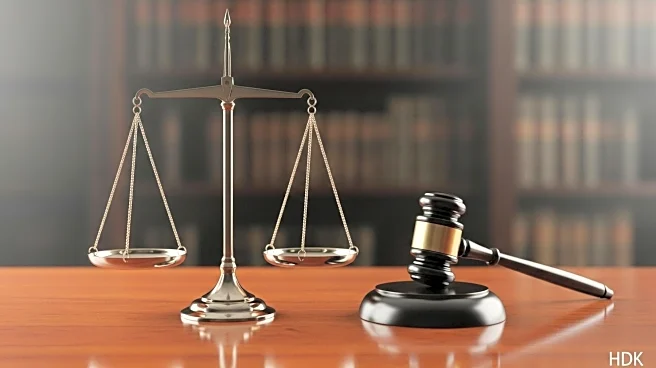What's Happening?
In response to the Trump administration's legal pressures, several boutique law firms have emerged as key players in challenging executive orders and defending the rule of law. These firms, including Dunn Isaacson, Abbe Lowell's boutique, and Paul Clement's firm, have been established by former partners from major law firms who have chosen to break away from Biglaw. The shift is driven by a perceived reluctance of larger firms to confront unconstitutional executive orders due to conflicts between corporate interests and litigation priorities. Boutique firms are gaining popularity for their ability to handle significant litigation without the inherent conflicts of larger firms. This trend is highlighted by the Wall Street Journal, which notes the growing appeal of litigation boutiques in the current political climate.
Why It's Important?
The rise of boutique law firms signifies a critical shift in the legal industry, where smaller firms are increasingly taking on high-stakes cases against the government. This development is important as it reflects a growing dissatisfaction with Biglaw's approach to handling politically sensitive cases. Boutique firms offer a more focused and conflict-free environment, allowing them to represent clients with disputes against the government more effectively. This trend could lead to a more dynamic legal landscape, where smaller firms play a significant role in shaping public policy and defending constitutional rights. The shift also highlights the potential for increased legal challenges to government actions, impacting industries and stakeholders involved in these disputes.
What's Next?
As boutique law firms continue to gain traction, they may attract more talent from larger firms, further strengthening their position in the legal market. This could lead to an increase in high-profile cases challenging government actions, potentially influencing public policy and legal precedents. Stakeholders, including political leaders and corporate entities, may need to reassess their strategies in dealing with legal challenges, considering the growing influence of boutique firms. The legal industry may see a shift towards more specialized and agile firms, capable of addressing complex legal issues without the constraints faced by larger firms.
Beyond the Headlines
The emergence of boutique law firms against the Trump administration's legal challenges raises ethical and cultural questions about the role of law firms in defending constitutional rights. It underscores the importance of legal independence and the need for firms to prioritize the rule of law over corporate interests. This development may lead to a reevaluation of the ethical responsibilities of law firms in politically charged environments, potentially influencing the future direction of legal practice in the U.S.









